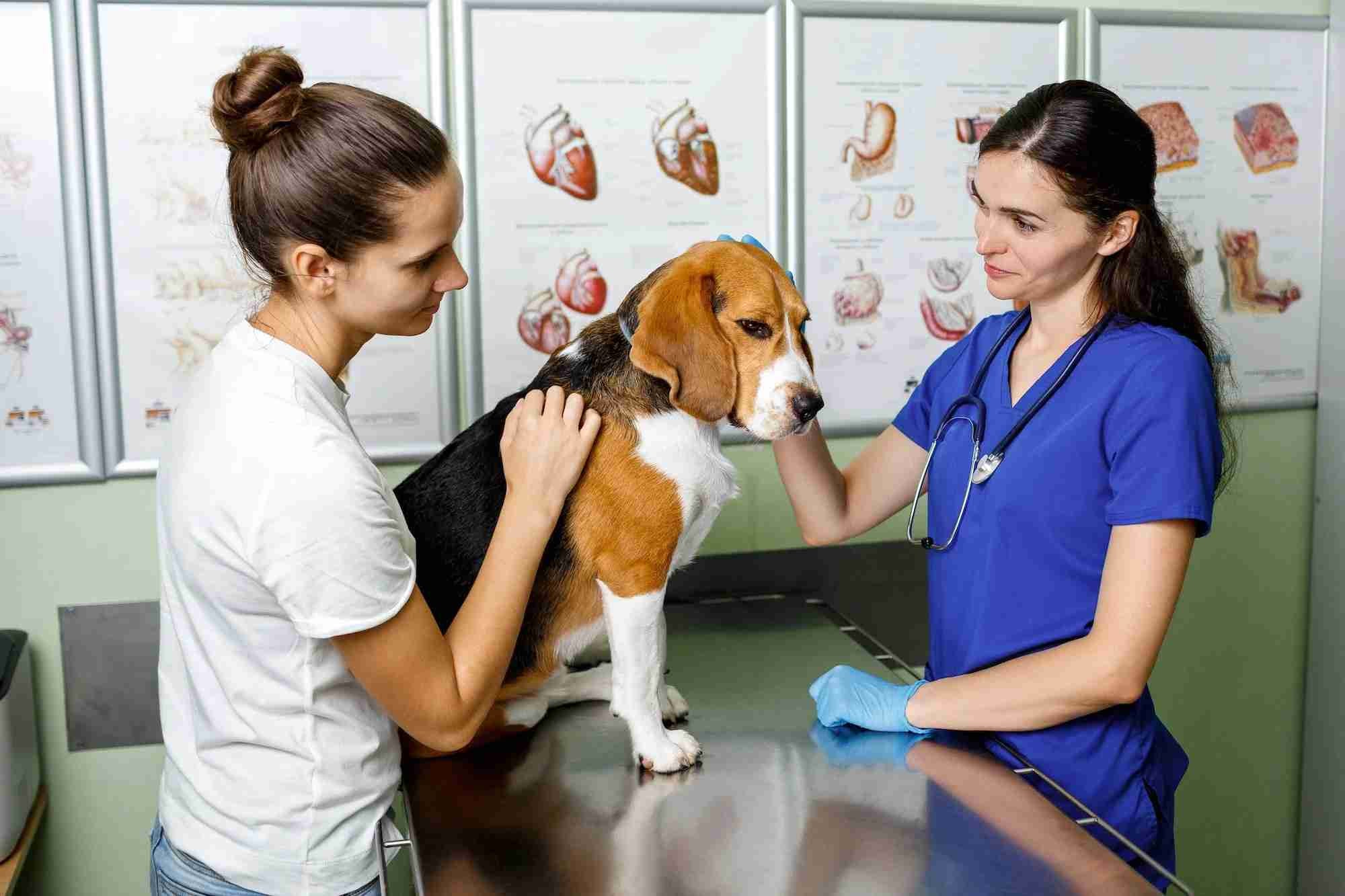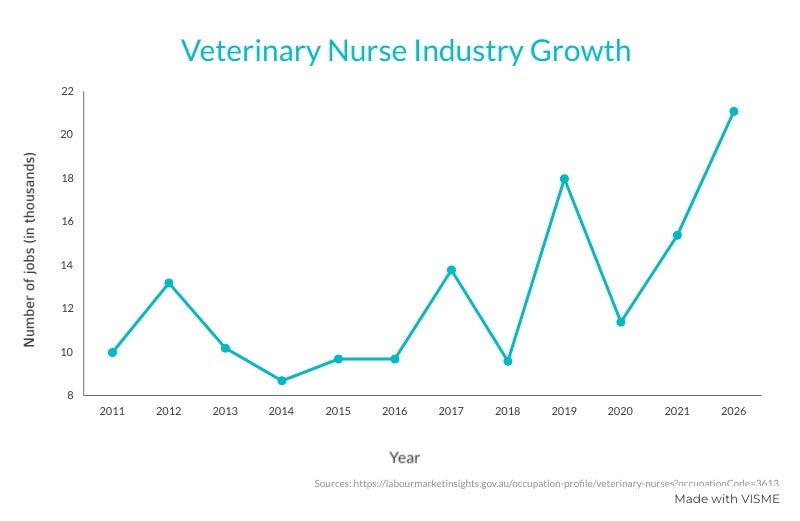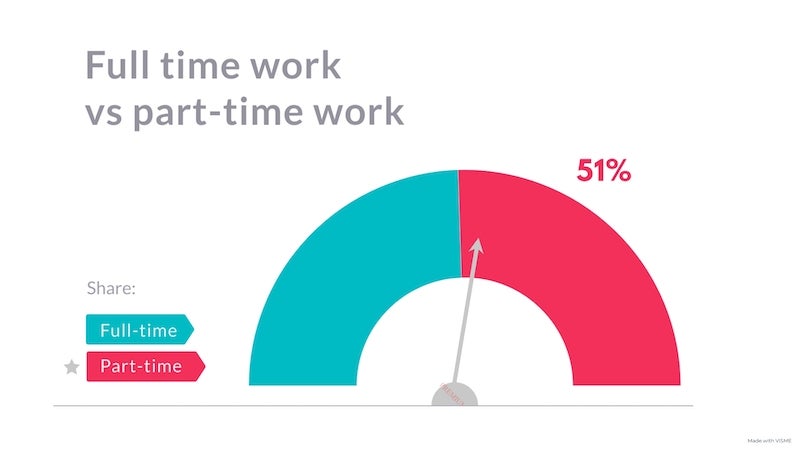5 Truths About a Career in Veterinary Nursing

If you love working with animals, you may have considered becoming a vet nurse. Find out what this rewarding career path is really like, with insights from a Melbourne qualified veterinary nurse.
Do you believe that every living creature is worth saving? If you’re passionate about animals and their welfare, becoming a vet nurse could be the perfect role for you. The veterinary industry is a passionate one, who hold their love for all sorts of animals at the forefront of their hands-on work.
In Australia, there’s a desperate need for compassionate, skilled vet nurses. Australia has one of the highest rates of pet ownership in the world, with approximately 61% of households owning at least one pet. There is also an incredible range of wildlife in need of critical care and rehabilitation.
Although loving animals is important, it’s not enough by itself – veterinary nursing isn’t without its challenges. Vet nurses are everyday heroes who have to be ready for anything, at any time.
We spoke to a Melbourne qualified veterinary nurse, Lauren Carroll, to get the inside scoop on what’s involved in an animal healthcare career, and uncover the process of becoming a vet nurse in Australia.
So what does it take to be a great vet nurse? And what’s the job like day-to-day?
“It’s a bit crazy. But it’s honestly an amazing job. And I would recommend it to anyone that has a passion for animals.”
— Lauren Carroll, Veterinary Nurse
1. Vet nurses can do it all
A vet nurse supports vets and provides nursing care for all kinds of animals. Also called an animal nurse, or a veterinary nurse, vet nurses are an indispensable part of a vet clinic, making sure daily operations are running smoothly.
Vet nurses are efficient keepers of the veterinary clinic, making sure that the consulting rooms are clean, the equipment is sterilised, and the appointment book is balanced. They’re also the face of the veterinary clinic, gracious and steady guides for distressed pet owners who are scared for their furry, feathered or scaly friends.
On top of these responsibilities, vet nurses simultaneously provide high-quality medical care for every animal that passes through the practice doors.
The work doesn’t always stop when the vet clinic closes or you clock off from your shift. Many veterinary hospitals, clinics or shelters are not open 24 hours, so animals that need round the clock care are taken home with vets or vet nurses to be monitored. The work-life balance can be tricky to navigate, but it’s worth it for anyone who is passionate about animal welfare.
“Your job doesn’t really stop when you get home. If I can’t get a wildlife carer to come down that day and pick up a baby possum, I will take the possum home to make sure it’s fed and watered and it stays alive until it can get picked up.”
— Lauren Carroll, Veterinary Nurse
What’s the difference between a vet nurse and a vet?
The difference between a veterinary nurse and a veterinarian is similar to the difference between a career as a nurse and a doctor in a human healthcare practice.
A vet, or veterinarian, is the animal equivalent of a doctor. Veterinarians must have completed a Bachelor of Veterinary Science, or a similar bachelor’s degree, then complete a Doctor of Veterinary Science. Vets also must register with their state’s Veterinarian Board.
Similarly, a vet nurse is the equivalent of a nurse. Vet nurses hold at least a Certificate IV in Veterinary Nursing (ACM40418) and work in a support role to the veterinarian in patient care and operations.
What do vet nurses do every day?
A vet nurse’s daily duties and responsibilities vary depending on the workplace and factors including:
- The level of qualification you hold
- The level of experience you have
- The type of practice you’re working at
An experienced vet nurse working in a specialist clinic for exotic birds will be involved in very different activities to a new vet nurse working in a busy general practice animal hospital.
“Spend the day in a clinic and see what happens, be around it — just for a day or two — to get some kind of idea of how it can be.
Some people might think they’re cut out for a big hospital, but they might be better in a smaller practice that doesn’t have as many complicated cases. Whereas I quite like being in a hospital. I get emergencies, insane cases and I deal with things I’ve never seen before — it’s completely different.”
— Lauren Carroll, Veterinary Nurse
Vet nurse responsibilities and tasks
Whatever vet nursing role you find yourself in, you will be working closely with animals and people. You’ll also be responsible for a wide range of duties and responsibilities including:
“I thought I wasn’t going to handle the blood and guts, but actually, it was not as bad as I thought it was going to be.”
— Lauren Carroll, Veterinary Nurse
Where do vet nurses work?
Veterinary nurses aren’t limited to working in animal hospitals or general practice clinics. You can find vet nurses at:
- Specialist clinics
- Wildlife rescues
- Zoos
- Research centres
- Teaching others (education and training)
- Freelance consulting
2. Vet nurses don’t stop
If you’re imagining your future life as a vet nurse, you may be wondering: what is the typical work schedule of a veterinary nurse?
The answer? It depends on the clinic. It’s common for vet nurses to work a regular Monday to Friday work week, with occasional overtime. Many clinics, however, are open on weekends, which means you may get rostered on. If you work at an emergency centre, you will probably be required to do occasional night or overnight shifts.
“My typical day depends on what shift I work. I do 10-hour shifts, and I work in a hospital that is very, very busy. It’s constantly on the move. When you’re a nurse, you’re also a receptionist. So you’re out the front taking phone calls, emails, and talking to clients.
Lots of clients call up and ask for general information like food and diet. So you have to be knowledgeable about the best diet for cats and dogs, especially those who suffer from diseases or have dietary imbalances.
The other part of my day would be if I’m a consulting nurse, which means that I go into every consultation before a vet does. So, half my day can be spent in surgeries, monitoring the anaesthetic, taking blood, placing catheters, giving the dogs their fluids, giving them the medications.
Lots of cleaning! Part of the job is lots of cleaning and laundry. Basically, it’s 24/7 — you don’t stop.”
— Lauren Carroll, Veterinary Nurse
3. Vet nurses don’t do it for the money
As with many careers, vet nurses are paid according to their experience and skill level. Pay typically ranges between $54,000-112,000 for vet nurses in Australia. The average salary for vet nurses in Australia sits around $66,000. The animal care industry is generally not particularly high-paying work (depending on the career), especially when you’re just starting out. Full-time introductory-level veterinary nurse jobs pay around $42,255, or $21.38/hr.
People in this career are in it for the love — not the money. Still, your earning potential can grow over time if you play your cards right and invest in your career.
Very experienced, highly skilled vet nurses with leadership and management skills are considered extremely valuable, and veterinary practices will pay well to keep the right person on their team. A Diploma of Veterinary Nursing (ACM50219) and leadership experience will increase your valuable expertise — and your chances of earning closer to the high end of the scale.
Minimum wages are set by the Australian government. Veterinary nurses are covered by the Animal Care and Veterinary Services Award (MA000118), which can be helpful for seeing pay rates for shift and casual work.
It’s worth looking at the Fair Work website for more details around your employment rights and minimum standards.
Minimum vet nurse salary under the award rate
| Classification | Hourly | Weekly | Yearly |
|---|---|---|---|
| Veterinary nurse – introductory level | $21.38 | $812.60 | $42,255.20 |
| Veterinary nurse – level 1 | $21.97 | $834.80 | $43,409.60 |
| Veterinary nurse – level 2 | $23.74 | $902.10 | $46,909.20 |
| Veterinary nurse – level 3 | $24.76 | $940.90 | $48,926.80 |
| Veterinary nurse – level 4 | $27.02 | $1026.60 | $53,383.20 |
“I think the industry is getting more recognition that we nurses and vets should be paid more. You’ve got a couple of clinics that will go for the minimum. And then you get some that really take care of their staff — and I’ve been in both. When you’re working for people that really love their nurses and support them, it’s great.”
— Lauren Carroll, Veterinary Nurse
4. Demand for vet nurses is growing rapidly
Demand for vet nurses is projected to rocket upwards by 2026, with future growth predicted to be at 15.4%. Now has never been a better time to dive into vet nursing.

Vet nursing can be a flexible job, with a halfway split between full-time and part-time positions. If you’re after a position with great job security and regular hours, vet nursing is the way to go. If you’d prefer more flexibility there are also plenty of part-time roles available.

“I think if anyone’s got a passion for animals and wanted to do something with them, it’s definitely an amazing career and a rewarding job to have.”
— Lauren Carroll, Veterinary Nurse
5. Getting into vet nursing isn’t hard
You don’t need a university degree to become a veterinary nurse, but a Certificate IV in Veterinary Nursing (ACM40418) is required in order to be qualified. The courses below are pathway courses to help you get into the Cert IV.
It usually takes 2 years of full-time study to become a qualified vet nurse when completing the Certificate IV in Veterinary Nursing — though you may start working as a student nurse far before then.
Alternatively, if you have a busy schedule or you’d like to study while you work, you may want to study part-time. It will take longer to complete, but you won’t need to put your life on pause or reduce your social/work life in order to complete your certificate.
Already employed?
Get your experience and skills formally recognised or upgrade an older qualification by arranging a Recognition of Current Competence.
Steps:
If you’re keen on becoming a vet nurse, these are the steps you need to take:
1. Sort out your entry requirements
You need to complete the Certificate IV in Veterinary Nursing in order to become a vet nurse, but first you need to make sure you meet the entry requirements. There are a few ways to achieve this:
Certificate II in Animal Studies
Best for those at high school, this course doesn’t count towards your Certificate III — but can help you gain entry to it.
Find Courses
Certificate III in Animal Studies (Veterinary Nursing)
This course is the better option for most people who’d like to enter the Cert IV. It’s a direct pathway, and gives you credit for the course.
Find Courses
Traineeships
With a traineeship, you can earn money and experience while you earn a qualification.
2. Get the certificate IV
You’ll need to complete the Certificate IV in Veterinary Nursing (ACM40418) to start working as a vet nurse. This is the minimum requirement for vet nurses in Australia.
3. Secure work experience
If you’ve taken on a traineeship, you’ve already got this step covered! If not, then you may have to source a work placement to complete your course. The great news is that you may end up working at the clinic you do your placement at. Completing placement is a great opportunity to build your first relationships in the industry.
If you’re looking for a placement or your first job after completing your course, follow these steps:
Visit in person
Visit local veterinary practices in person and introduce yourself to the practice manager. Don’t send in your application via mail or email. Vet clinics usually get a lot of applications, and meeting them face-to-face makes a much better impression.
Put your best foot forward
Ensure you’re neatly groomed and dressed, and bring a polished resume and cover letter with you.
Highlight transferable skills
If you have any experience in customer service, sales, or administration, emphasise it! These skills are essential in vet nursing, and will make you a stronger candidate for the job.
Show willingness to learn
Let them know that although you may be new to the industry, you’re very willing to learn.
4. Get accredited
Getting accredited is optional in becoming a vet nurse, but it’s a great idea. It shows your commitment to constant improvement and professional development, which is highly regarded by employers in a crowded job market.
Visit the Veterinary Nurses Council of Australia for instructions on how to get accreditation.
5. Build career confidence
Your learning journey is only beginning! Once you’re in a veterinary practice, you’ll have the opportunity to soak up as much information and skills as you can. Don’t waste it, this is the time that separates you – a great vet nurse – from just a good vet nurse.
Here are some tips for making the most of your first few years in a vet nursing career:
6. Level up with further study
Once you’ve gained some experience, it’s time to grow as a nurse by continuing on to study a Diploma of Vet Nursing. You might also choose to study a specialist certificate in an area such as wildlife. This may help further your career, lead you to better pay, and open up wider career pathways in the industry.
Diploma of Veterinary Nursing
You’ll specialise in one of these areas: general practice, emergency and critical care, surgery, or dentistry.
Find Courses
If you love animals, vet nursing is one of the most rewarding, fulfilling careers out there. If you’re looking for more than just a job and want to make a real impact in the world, vet nursing could be the career you’ve been looking for.


